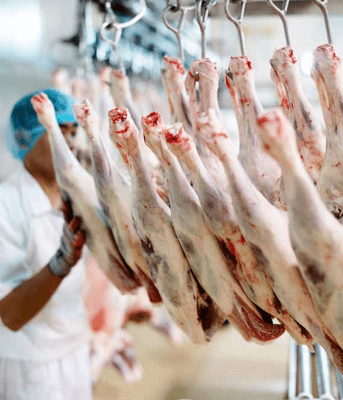THE Australian Meat Industry Council has again called on the Office of Victorian Premier Daniel Andrews, Victorian Chief Health Officer Professor Brett Sutton and DHHS to consult directly with the industry on the current workforce caps in place for meat processing and manufacturing in Melbourne.
 “Whilst shocking to see the outcomes of the response to construction industry interventions by this government, the Premier has mandated vaccination for the construction industry, stating there are more cases in construction than there are people in hospital with COVID,” AMIC chief executive Patrick Hutchinson said.
“Whilst shocking to see the outcomes of the response to construction industry interventions by this government, the Premier has mandated vaccination for the construction industry, stating there are more cases in construction than there are people in hospital with COVID,” AMIC chief executive Patrick Hutchinson said.
“If DHHS has industry stats, is it able to provide the number of meatworkers that have the virus which has ensured we need these workforce caps? We have not been informed nor consulted on these statistics, nor have our vaccination rates been considered,” Mr Hutchinson said.
“We believe that there are no sites that have had any onsite cases. This would no doubt be due to 25pc of sites having more than 80pc of workforce fully vaccinated and almost half having between 50pc and 80pc fully vaccinated, according to AMIC member data. The same data ignored by Premier Andrews, DHHS and the Health Minister.”
AMIC has still not heard from DHHS, the VIC Health Minister, nor the VIC Premier’s department. AMIC has also written to the Health Minister jointly with the Australian Chicken Meat Federation and Seafood Industry Victoria, with no response as at today.
“In another ‘ruse’ from this government on consulting with our industry, a statement released by Premier Andrews on 20 September titled Business Consultation Helps Shape Path Out Of Pandemic, named AMIC as having been consulted with, and invited to, a roundtable of “industry leaders” with Minister for Small Business Jaala Pulford.
“In fact, AMIC was part of a group of 250 associations and individuals invited to a briefing by Department of Jobs, Precincts and Regions (DJPR). This is not industry consultation.”
Nationals leader, Peter Walsh, has also called on the Andrews Labor Government to work with industry.
“For every day these workforce reductions are in place, there is a growing impact on the supply chain including farmers, producers, processors, manufacturers, wholesalers, cold stores, independent local butchers, and supermarkets,” Mr Hutchinson said.
AMIC’s processing and manufacturing members in metropolitan Melbourne have reported the need to spread their workforce up to a seven-day week, with tens of thousands of dollars being paid in penalty rates, loss of large contracts due to not being able to guarantee supply, with one reporting that more than 100 tonnes of Christmas hams had been diverted away due to processing constraints.
“We have nervous smallgoods manufacturers in metro Melbourne right now,” Mr Hutchinson said.
“They have said it all comes down to labour. If they can’t be certain they have the labour, they can’t forecast to meet the Christmas ham demand.”
Currently storage stocks are being used to meet orders, however the real impact on the sector will be felt in four to six weeks if workforce restrictions continue, which will also provide uncertainty for farmers and producers, he said.
Lamb heavily impacted
With Australia’s major spring lamb “flush” now fully in operation, Metro Melbourne lamb processors, and Victorian and Australian lamb farmers, will be impacted severely, AMIC warned.
Meat and Livestock Australia has pointed out that if this continues to Melbourne Cup Day, there is a potential surplus of 250,000 lambs in the market.
“At a time when finally Victorian and other Australian farmers can obtain benefit from a good season, Premier Andrews will be taking this away from them. This will impact prices and there is not enough capacity to take up the surplus,” Mr Hutchinson said.
“We are also seeking clarification on what the “further obligations” mean in the roadmap with regards to meat processing, will we as the peak industry body be consulted on these obligations?”
“What is the Victorian Premier’s message to farmers and meat industry supply chain workers while these workforce restrictions continue?” he said.
“What is the message to consumers as we manage a reduced food processing industry in Melbourne coming up to Christmas?



HAVE YOUR SAY